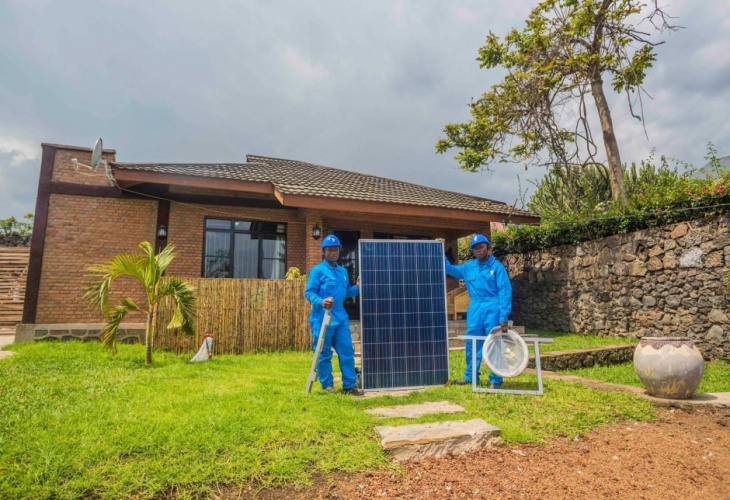
Since 2010, BBOXX has delivered solar home systems (SHS) that consist of solar panels, battery storage, and a range of home appliances on a PAYG basis.
The company has installed 200,000 SHS that are remotely monitored via BBOXX Pulse, a real-time, remote monitoring system that allows BBOXX to manage operations and customer payments via mobile phone. BBOXX also plans to provide other key utilities in addition to electricity, such as gas and water, along with insurance and financial services.
Over 600 million people in Sub-Saharan Africa live in off-grid areas beyond the reach of conventional transmission and distribution networks. Kerosene lamps have typically been the main source of indoor lighting. The investment from Mitsubishi Corporation will help drive BBOXX’s growth across Africa, where it currently operates in 12 countries, as well as in Asia.
“Our Series D round is made up of investors spanning three continents and is a testament to how the global community is embracing sustainability,” said Mansoor Hamayun, CEO and co-founder, BBOXX. “BBOXX provides the technology and the scalability that makes us a tool for development and brings us closer to meeting the United Nation’s Sustainable Development Goals (SDGs).”
The latest investment follows a string of deals and strategic partnerships including the $31m investment from Africa Infrastructure Investment Managers in January. Last year EDF became a joint shareholder in BBOXX Togo with a 50 per cent stake.
The company’s founders are alumni of Imperial College London who derived BBOXX from their technology, a small “battery box”. According to Imperial, one end plugs into a solar panel, while the other end connects with electrical sockets. They use so-called ‘mobile money’ to charge customers a monthly fee for the use of solar panels and lighting strips. The fixed-period contracts usually run for about two years, until the equipment is paid off. Customers can then choose to keep their existing equipment and use the electricity for free, or upgrade their system to include more panels and extra appliances under a new contract.




Nanogenerator consumes CO2 to generate electricity
Nice to see my my views being backed up by no less a figure than Sabine Hossenfelder https://youtu.be/QoJzs4fA4fo